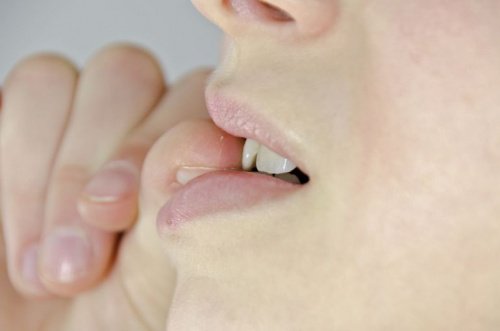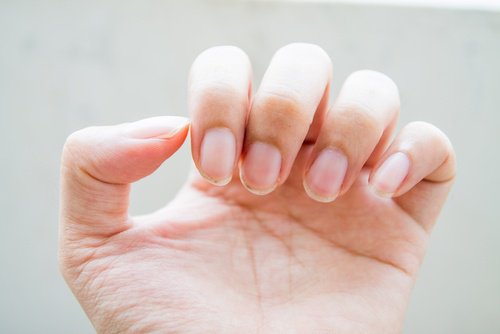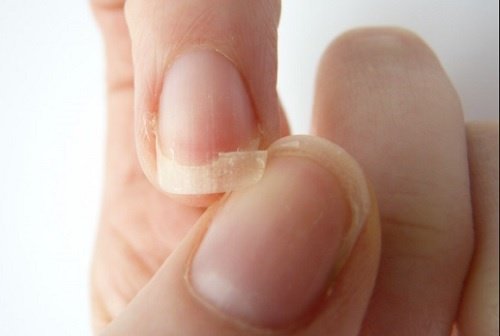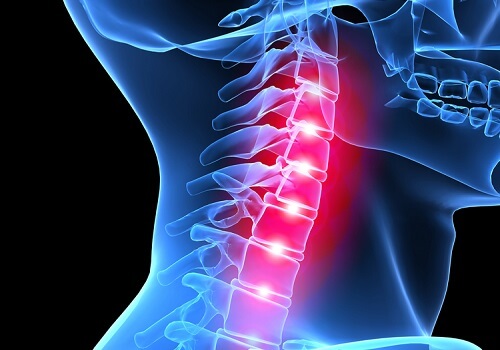7 Reasons Why Nail Biting is Bad

Other than being quite unsightly problem, nail biting may result in health complications such as bacteria and deformed fingers. Onychophagia, commonly known as nail biting, is a habitual problem at any age.
In this article we’ll explain why it’s bad to bite your nails and why you should refrain from doing so.
Reasons for nail biting

Nail biting is a habit that thousands of people have and one that they developed during their childhood. Even though the majority of us have passed through this phase, some people have maintained the habit through the years.
One of the strangest characteristics of this habit is that we often don’t notice that we’re doing it. In other words, we are doing this unconsciously while watching television, traveling in the metro or in line at the supermarket.
Nail biting is a very difficult habit to break. Even though we know that it isn’t attractive to do so, we continue to hurt out fingers and even stop doing something just to remove the last morsel of nail.
In many cases, doing so provides our minds with an escape from our problems, worries and negative feelings. Controlling anxiety and stress also tend to be reasons why people bite their nails. After doing it for so long, this habit becomes similar to a nervous tic, uncontrollable and a daily routine.
Read more: Reduce Anxiety with These 5 Calming Remedies
How do I stop biting my nails?
To stop biting their nails, many women take into account the aesthetic side. In the case of men, it is a bit more complicated but not impossible. Maybe you have tried bitter tasting nail enamel and bandaging your nails but neither seem to work.
Although we know that these habits cause problems, we often need other types of incentives to be able to stop bad habits, as we do with smoking or drinking alcohol.
Nail biting affects nail growth as much as their structure. This results in small cracks in the different layers of the nail. Because of this, nails form unequally and don’t cover the entire surface of the finger.
What effects does nail biting have?
Among the consequences of having this habit, we can form two groups: the physical and the psychological or emotional. In either case, these consequences are worth taking into account if we want to stop biting our nails once and for all.
Lack of nail growth

When the nail is bitten far down, it grows back inadequately and at a very slow pace. This, for example, prevents the fingers from looking nice and affects the physical beauty of the hands.
Pain
The pain is unbearable when picking up an object, opening an envelope, using tools, typing on the computer or using the cell phone. We cannot carry out our daily activities in an effective manner. When our fingers touch any item, we wince with pain.
Bacterial diseases
The fingernails are an ideal place to spread all types of bacteria. The fingers are constantly manipulating objects that may be contaminated and dirty. The most common types of bacteria that develop under the nails are salmonella and E. Coli, which are both transmitted through raw foods.
When we put our fingers in our mouths, the microorganisms automatically pass into the mucous. From there they go directly into our body, where they can then harm us. Nevertheless, some people who bite their nails have a stronger immune system precisely because of the ingestion of these bacteria. The body learns to defend itself against these and doesn’t fall ill.
See also: Help Prevent Bacterial Infections with 7 Amazing Foods
Dental problems
It’s usually our front teeth that bite the nails. This increases the wearing out of the edges of the teeth and increases the sensitivity of the teeth. Doing so also wears down tooth enamel.
On top of this, our habit can also cause malocclusion, which is poor dental alignment. It can also cause chewing problems and sleeping problems if the mouth doesn’t close completely.
Emotional factors
A typical habit of a nail biter is to hide their hands. The truth is that no one likes to have people see their bitten or broken nails. Among the emotional consequences of this habit are shame, low self esteem, frustration and sadness.
Joint Pain
Even though it sounds strange, this obsession causes pain in the neck and the jaw due to the force that the muscles must exert to remove the nail fragments.
Infectious Disease
When you bite your nails you are more susceptible to suffer from a disease known as paronychia. This is a disease of the fingers that causes swelling, redness and production of pus. It develops when bacteria enters in the fissures and tears in the skin.
Fungus is also frequent when the flesh of the fingers is in the open air and the nail doesn’t protect the skin.
As you can see, biting your nails is not just a bad habit, it can actually be very damaging to your health.
This text is provided for informational purposes only and does not replace consultation with a professional. If in doubt, consult your specialist.









